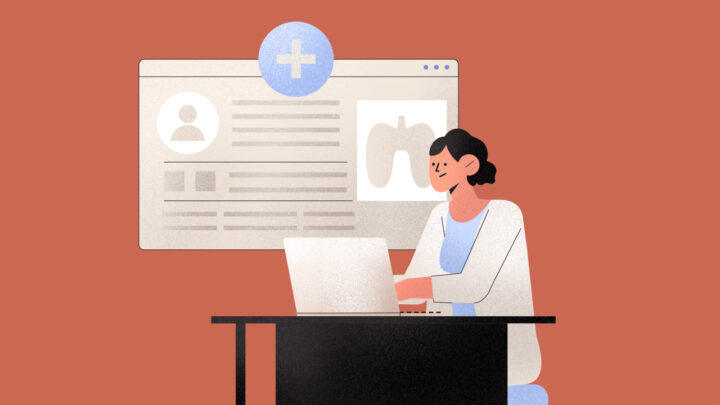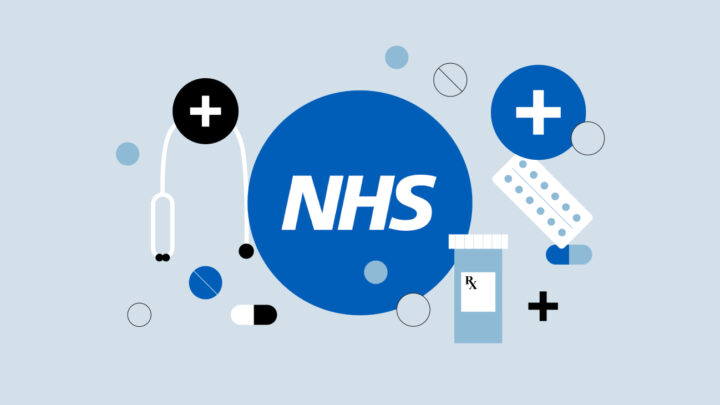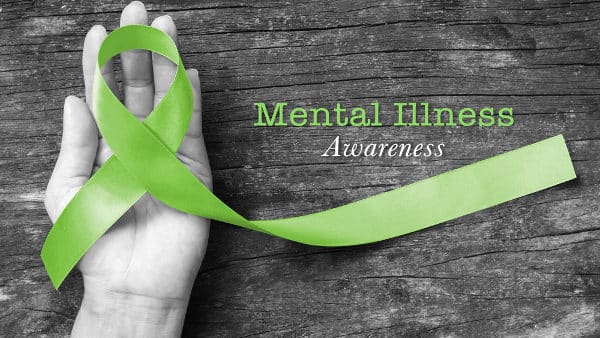
Poor mental health among physicians has reached crisis levels. 75% of physicians report experiencing burnout or stress, with 93% stating that these issues have worsened since the COVID-19 pandemic.1
Despite these alarming numbers, 68% say their workplace doesn’t prioritize mental health support, even though 50% of physicians would accept it if it were offered. These statistics highlight an urgent need for change.1
So, what’s driving this mental health crisis? What barriers prevent physicians from accessing and seeking help? And most importantly, what support could be provided? This article uses current research and thoughts from verified doctors in the Sermo Community to shed light on the subject.
Understanding the mental health challenges physicians face

Physicians face unique pressures that many outside the profession can’t fully comprehend. For example, physician burnout in the specialty of Emergency Medicine is at 63% due to the high-stress, high-intensity environment.2
These challenges manifest in alarmingly high rates of poor mental health: 29% of physicians experience depression and 24% face anxiety.3 Even more troubling, physician rates of suicide are disproportionately high. Physician suicide is twice as likely compared to the general population.4
The root causes of these suicides and depression in doctors statistics are multifaceted and deeply ingrained in the healthcare system. Long hours and heavy workloads leave physicians physically and emotionally drained, while moral distress — stemming from resource shortages and adverse patient outcomes — compounds daily stress.5 Emotional trauma is a constant burden, yet cultural stigma prevents many from seeking help, with 34% fearing professional repercussions.1 This leaves countless physicians struggling in silence.
The ripple effects of poor physician mental health are profound and include:
- Sleep deprivation undermines immune function, memory retention and emotional resilience, impairing physicians’ ability to perform and process trauma.5
- A hostile work environment which further exacerbates the issue, with 1 in 3 medical students reporting sexual harassment and 51% experiencing bullying.5
These stressors not only increase the likelihood of medical errors but also erode the quality of patient care. As a Sermo Family Medicine member aptly stated, “If health personnel are not in good mental health, patients cannot be cared for as they need.6”
Addressing these challenges is essential — not just for physicians’ well-being but for the safety and quality of the care they provide.
Barriers to mental health support and overcoming stigma

Barriers to mental health support remain a significant challenge for physicians, driven primarily by self-stigmatization and restrictive licensing requirements. According to a recent Sermo poll:
- 40% of physicians believe colleagues with a history of depression or anxiety are viewed as less competent.7
- 47% think such individuals are less likely to be hired.7
- 40% avoid treatment due to fears of licensing repercussions.8
To see doctors’ trending attitudes concerning politics and healthcare, participate in our live Sermo poll. If you’re not a member, sign up and click the link to go directly to the poll.
Self-stigmatization, fueled by perfectionism and self-sufficiency, leads many to view psychological distress as a personal failing, resulting in shame and delayed treatment. Compounding this issue are mandatory mental health declarations for licensure, which reinforce fears of professional consequences.9 Both of these challenges create an environment where physicians struggle to access care, perpetuating the cycle of poor mental health.
With 26% of physicians urging hospitals to address burnout,1 policy reform is essential to foster open dialogue and create a culture where seeking support is safe and encouraged. As a Sermo GP noted, “Changes in regulations could substantially benefit thousands.10”
What are the practical solutions to reduce physician burnout? A key factor in the emerging crisis

Improve staffing levels and workloads
Addressing burnout requires tackling its root causes, including inadequate staffing and excessive workloads. With a U.S. physician shortage projected to reach 64,000 this year and 86,000 by 2036,11 the strain on remaining healthcare workers continues to intensify, fueling stress and burnout.
Hospitals and practices need to consider some actionable steps to tackle the issue of burnout, such as flexible scheduling and telemedicine, mental health initiatives, and reduced administrative burdens.
As one Sermo GP described, “The doctors are not enough, and this has generated a lot of stress, long hours and illnesses that make them absent from work.12” Improving staffing levels would ease workloads, reduce stress and enhance physicians’ mental health, enabling them to deliver higher-quality, more consistent patient care.
Give more vacation time
Time off is critical for recharging and reducing burnout, yet many physicians feel they don’t get enough. Many Sermo members advocate for longer vacation allowances.
Vacations that are too short can exacerbate stress, as one Family Medicine member explained: “Shorter vacations are stressful and almost not worth it in terms of coming back to a bunch of paperwork when already tired.13”
In contrast, longer holidays can give physicians enough time to unwind. As a Pediatrics member noted, “Two weeks is the sweet spot — it allows for the decompression days, then finally the enjoyment.13”
Therefore, offering sufficient vacation time in one way to help physicians truly recharge and maintain their mental health.
Streamline administrative burdens with AI tools
Studies show that physicians tend to report lower levels of burnout when they can provide their patients with a positive healthcare experience. Yet, administrative tasks often take them away from their ability to focus on their patients. As one Sermo member shared, “Reduce administrative tasks so we have more time with patients.14”
Healthcare organizations should look to incorporating AI-powered tools in their operations, such as electronic health record systems, to automate repetitive administrative tasks. This technology could enable physicians to dedicate more time to meaningful patient interactions, enhancing care quality while potentially supporting the physician to maintain good mental health.
Offer comprehensive mental health training programs
“Mental health care is very important in medical training and practice because we go through a lot of mental stress,15” one Sermo GP member succinctly argues.
Programs like Mental Health Awareness Training (MHAT) by the Substance Abuse and Mental Health Services Administration (SAMHSA) demonstrate the impact such initiatives can have, with 487,459 individuals trained and 80% showing improved knowledge, attitudes and beliefs about mental health.16
By equipping physicians with tools to recognize and manage mental health challenges in themselves and colleagues, healthcare systems can foster resilience and early intervention, improving both individual well-being and patient care.
Ensure safe & confidential access to mental health services
34% of Sermo members emphasize the need for assurance that seeking care won’t harm their careers,1 so fear of professional repercussions remains one of the greatest barriers to physicians asking for mental health support.
Programs like NHS Practitioner Health in the UK illustrate the importance of confidential, stigma-free services. In this model, 76% of practitioners who were unable to work returned after treatment such as counselling.17 Providing physicians with safe, confidential avenues for support ensures they can seek the care they need without fear of professional consequences.
Removing systemic barriers through revised licensure policies and providing physicians with safe, routes to support ensures they can seek the care they need without fear of professional consequences, ultimately enabling them to deliver better patient care.
Use online resources and peer support

Safe spaces are essential for fostering connection, reducing isolation and addressing the stigma around mental health in the medical community. These environments allow physicians to share experiences, reflect on challenges and build emotional resilience. Examples include:
- Conference talks: “If I can prevent one of you … from dying by suicide or suffering alone, it will be worth it.18” These powerful words were shared by Carrie Cunningham, MD, a former nurse who faced severe depression and temporarily stepped away from her practice. Using her own experience as a platform, she emphasized the critical role conference talks can play in addressing physician mental health by breaking stigma, fostering open dialogue and encouraging others to seek support.
- Online peer networks: Digital platforms like Sermo provide accessible support for physicians, with 29% of members preferring these tools to manage burnout and 32% advocating for their role in reducing isolation.19 As Kirch emphasized, “Sharing our personal struggles can help save [lives].4”
- In-person advocacy groups: In-person spaces like Schwartz rounds and Balint groups create opportunities for deeper emotional connection. As one Sermo GP noted, “We should normalize talking about mental health, especially because we are health personnel.20”
By expanding these safe spaces, physicians can build stronger peer connections, normalize seeking help and foster resilience.
The key takeaway
The physician mental health crisis is undeniable, with 75% reporting burnout and 92% witnessing it in colleagues.1
Addressing mental health for doctors requires robust solutions: workplace policies to ease burdens, peer support systems to foster connection and legislative advocacy to create systemic change.
Physicians must champion their own well-being and support each other, ensuring a healthier future for themselves and their patients. Together, these steps can help rebuild resilience and prioritize mental health.
Join the Sermo Community
Access peer support forums, participate in polls and gain valuable insights from a global network of physicians on Sermo.
Join Sermo now and be part of a supportive, solutions-focused community.
Footnotes
- Sermo New Promo: Stress Awareness Month
- Med School Insiders
- Harvey SB, Epstein RM, Glozier N, et al. Mental illness and suicide among physicians. Lancet. 2021
- AAMC
- Physician’s Weekly
- Sermo 2024 Comment on Half of Sermo physicians would take advantage of mental health support.
- Wijeratne C, Johnco C, Draper B, Earl J. Doctors’ reporting of mental health stigma and barriers to help-seeking. Occup Med. 2021
- Dyrbye LN, West CP, Sinsky CA, et al. Medical licensure questions and physician reluctance to seek care for mental health conditions. Mayo Clin Proc. 2017
- Ng IK, Tan BC, Goo S, Al-Najjar Z. Mental health stigma in the medical profession: Where do we go from here? Clin Med (Lond). 2024 Jan;24
- Sermo 2024 Comment on The Biden Administration’s push for mental health parity in insurance coverage.
- McKinsey & Company
- Sermo 2024 Comment on Physician and APP shortages in healthcare.
- Sermo 2024 Comment on Vacations: Long versus short.
- Sermo 2024 Comment on What’s everyone’s approach to tackling burnout in physicians?
- Sermo 2024 Comment on Poll of the Week: Work-life balance in medical school.
- SAMHSA
- NHS
- AAMC
- Sermo: Half of Sermo physicians would take advantage of mental health support
- Sermo 2024 Comment on Poll of the Week: Sharing about mental health.














